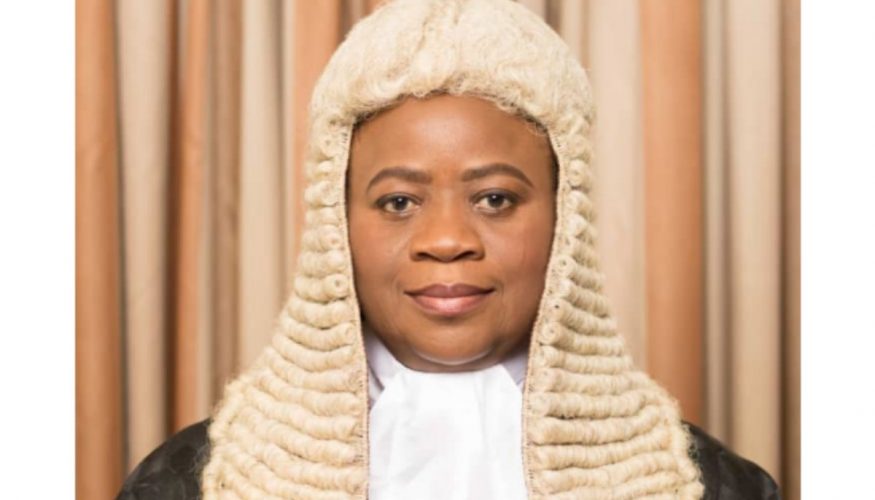‘WHY COURT OF APPEAL MUST REVISIT 2021 RULES’
The Court of Appeal has issued new rules for the adjudication of appellate cases. In this article, IBRAHIM LAWAL, Head of Chambers, Olujinmi & Akeredolu dissects Order 8 Rule 11 of the Rules dealing with “Deposit against Cost” and concludes that it leaves much to be desired especially as it relates to access to justice
COURT OF APPEAL RULES, 2021 AND DEPOSIT AGAINST COSTS: NEED TO HAVE A RETHINK.
It is no longer news that the Court of Appeal has given itself a new rules of court that will guide proceedings at the appellate court. The new rule, which commenced on the 1st day of November, 2021, has twenty five orders all together.
There are innovations brought into the rules which are far-reaching and will definitely change the face of adjudication at the appellate court. These innovations are Order 16 which deals with Court of Appeal Alternative Dispute Resolution Programme (CAADPR); Order 20 which deals with Electronic filling; Order 21 which deals with virtual hearing and Order 22 on Case Scheduling and Management system.
However, an interesting aspect of the rule is Order 8 Rule 11 with the heading, Deposit against Cost. Order 8 Rule 11(1) states as follows:
Upon the transmission of the Record of Appeal, whether by the Registrar of the lower court or by the Appellant, the Appellant shall, within such time as the Registrar of the court shall direct, deposit not less than Fifty Thousand Naira (N50,000.00) with the Deputy Registrar of that Division for the due prosecution of the appeal and for the payment of any costs which may be ordered to be paid by the Appellant: Provided that no deposit shall be required from an indigent person or where the deposit would be payable by the Government of the Federal Republic of Nigeria or of a state, or by any Government department.
The implication of this rule is that for an Appellant to lodge an appeal, he must be ready to pay Deposit against Cost of nothing less than Fifty Thousand Naira. As laudable as this rule is, considering the purpose for which it was inserted, I respectfully submit that the provision is against the principle of access to justice. Notwithstanding the exception of indigent appellants inserted in the rule, it is still going to hinder many people from accessing justice.
For instance, what is the yardstick for measuring an indigent person? Can we assume that majority of Nigerians can afford N50,000 willy nilly? It is conceded here that Order 13 of the rule clearly specifies how an indigent person should proceed, such procedure will unnecessarily delay the appeals if going by the number of appeals we have in our various appellate courts. When will such motion be listed for hearing and so on.
The reality of our situation as lawyers and minister in the temple of justice is that 90% of criminal cases at the appellate courts are done pro bono. As much as lawyers are encouraged to take pro bono cases, they want to dispense with such cases as quickly as possible. Lawyers virtually use their money to pay for the compilation of records and other ancillary costs, to add to their cost by the application of Order 8 Rule 11 is to discourage them from expanding the frontiers of the law.
Ditto the Fundamental Rights Enforcement cases.
It is my contention that Order 8 Rule 11 should not be applicable to criminal and Fundamental Rights Enforcement cases in order to encourage more access to justice.
Ibrahim Lawal is the Head of Chambers, Olujinmi & Akeredolu of the Law Hub, 9 Ring-Road Opposite Iyaganku GRA Roundabout Ibadan.
Copyright 2022 CITY LAWYER. Please send emails to citylawyermag@gmail.com. Join us on Facebook at https://web.facebook.com/City-Lawyer-Magazine-434937936684320 and on TWITTER at https://twitter.com/CityLawyerMag. To ADVERTISE in CITY LAWYER, please email citylawyermag@gmail.com or call 08138380083. CITY LAWYER cannot guarantee the completeness, accuracy of the data and content of the website, nor that it is up to date at all times. CITY LAWYER accepts no liability for any direct or indirect damage of any kind whatsoever that arises from, or is in any way related to the use of the website or its accessibility or lack thereof. The assertions and opinions expressed in articles, announcements and/or news on this website reflect the views of the author(s) and do not (necessarily) reflect the views of the webmaster, the internet provider or CITY LAWYER. CITY LAWYER can in no way whatsoever be held responsible for the content of such views nor can it be held liable for any direct or indirect damage that may arise from such views.
